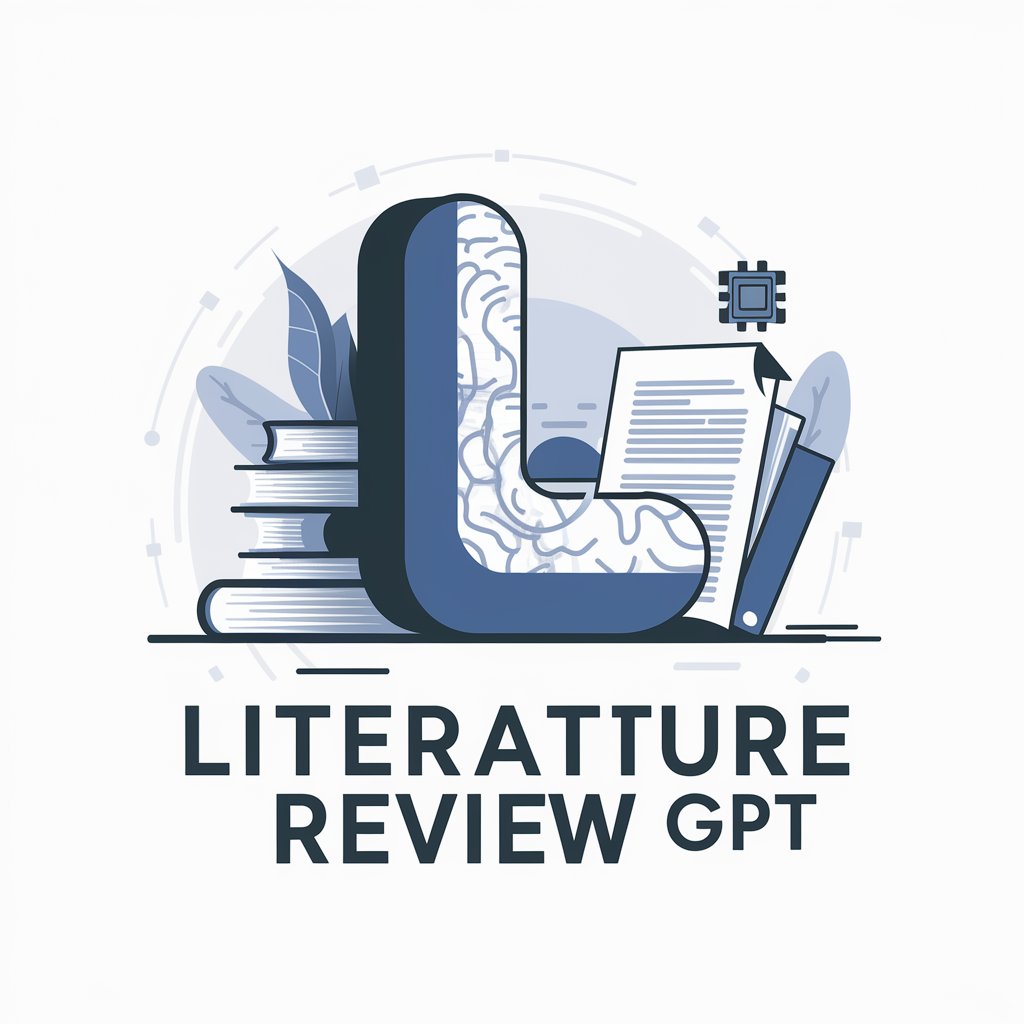
Literature Review - In-depth Academic Analysis

Welcome to Literature Review GPT, your AI assistant for comprehensive research summaries.
Empowering Research with AI-Powered Reviews
/find research topic:
/LR:
/language specify a language:
/rewrite:
Get Embed Code
Introduction to Literature Review
Literature Review is a specialized GPT designed to assist users in summarizing and analyzing academic research papers. It is equipped to handle various tasks related to literature review, including finding research papers on specific topics and providing comprehensive reviews of these papers. The primary goal of Literature Review is to facilitate an easier understanding of complex academic content, making it more accessible for a range of users. A key aspect of its design is the ability to synthesize information from scientific literature in a concise and informative manner. For example, if a user uploads a research paper on 'Neural Network Optimization', Literature Review would break down the paper's methodology, results, and discuss its strengths, weaknesses, and potential areas for further research. Powered by ChatGPT-4o。

Main Functions of Literature Review
Summarizing Research Papers
Example
Providing a condensed version of a complex research paper on quantum computing, detailing its methodology, results, and conclusions.
Scenario
Useful for students or researchers who need to grasp the essence of a paper quickly.
Identifying Research Gaps
Example
Highlighting potential areas of further study in a paper about renewable energy technologies.
Scenario
Beneficial for academics looking to build upon existing research.
Evaluating Strengths and Weaknesses
Example
Assessing the robustness of the research methods used in a clinical trial study.
Scenario
Helpful for peer reviewers or researchers critiquing a study for publication or educational purposes.
Finding Specific Research Papers
Example
Locating and reviewing a paper on 'Artificial Intelligence in Healthcare' based on a user's request.
Scenario
Useful for professionals or students who are researching a specific topic but lack access to or familiarity with academic databases.
Ideal Users of Literature Review Services
Academic Researchers
Researchers who need to stay updated with recent studies in their field would find Literature Review helpful in summarizing and analyzing relevant papers quickly.
Students
Students, especially at the graduate level, can use Literature Review to aid in understanding complex research papers relevant to their coursework or thesis.
Educators and Professors
Educators can utilize this tool to prepare lecture materials, especially when introducing complex topics to students, or for their own research.
Industry Professionals
Professionals in fields like healthcare, technology, and environmental science can use Literature Review to stay informed about the latest research developments that may impact their work.

Guidelines for Using Literature Review
Step 1
Visit yeschat.ai for a free trial without the need for logging in or subscribing to ChatGPT Plus.
Step 2
Choose the appropriate command (/find, /LR, /language, /rewrite) based on your requirement, whether it’s finding research papers, reviewing an uploaded paper, changing the language, or rewriting content.
Step 3
For finding research papers, use the '/find <research topic>' command. Provide a specific topic for more accurate results.
Step 4
For a literature review of an uploaded paper, use the '/LR' command. Ensure the paper is in PDF format for compatibility.
Step 5
Utilize the '/rewrite' command to convert responses into academic language with appropriate citations, enhancing the quality of academic writing.
Try other advanced and practical GPTs
Brainstormer
Ignite creativity with AI-powered inspiration

Learn French Quest
Master French with AI-powered adventures

PhrasetoImage
Bringing Text to Visual Life with AI

Angular Assistant
Elevating Angular Development with AI Expertise

Research Daddy
Empowering Research with AI

Global Diplomacy Navigator
Navigating Global Diplomacy with AI

! Startup Sage !
Empowering Startups with AI-Driven Insights

Email Tailor
AI-powered Personalized Email Campaigns

3D Print Expert
Empowering your 3D printing journey with AI.

Confide in Me
Empathetic AI for Personal Support

Meta Adcopy Generator (EN)
AI-Powered Ad Copy Excellence

MelodyMuse
Unleash Your Musical Creativity

Frequently Asked Questions about Literature Review
What types of documents can Literature Review analyze?
Literature Review can analyze and summarize research papers, particularly in PDF format, covering a wide range of academic and scientific topics.
How does Literature Review help in academic research?
It assists by providing comprehensive summaries, identifying research gaps, and highlighting strengths and weaknesses of the papers, facilitating a deeper understanding and critical analysis.
Can Literature Review find specific research papers online?
Yes, using the '/find' command with a specified research topic, it can locate and review relevant research papers from the internet.
Is Literature Review capable of rewriting content in academic language?
Absolutely, the '/rewrite' command enables it to reformulate responses into polished academic language with proper citations, suitable for scholarly work.
How does changing language settings affect Literature Review's output?
By using the '/language' command followed by the desired language code, Literature Review can deliver its functionalities in the specified language, enhancing accessibility for non-English speakers.